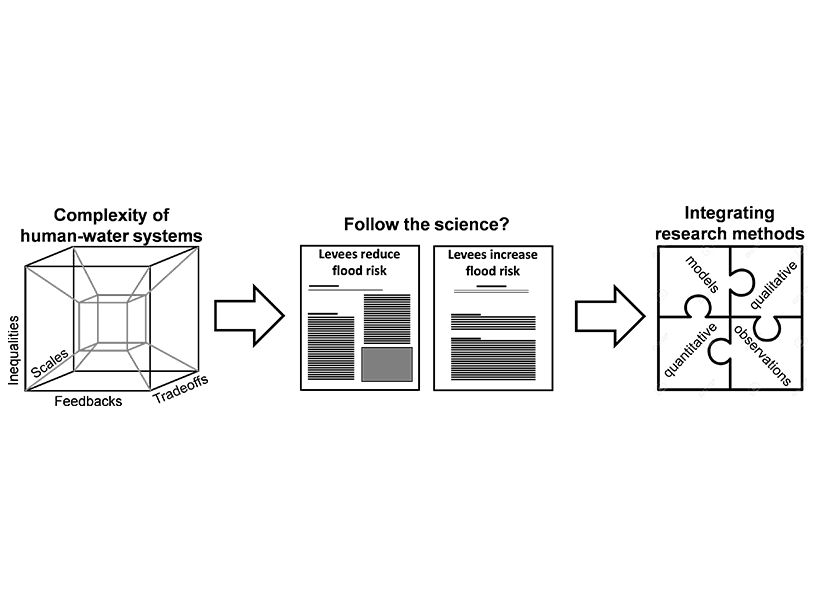Source: AGU Advances
Natural disasters such as floods and droughts have affected the earth and shaped human activities throughout its long geologic and more recent human history. The stakes in managing the risk are now higher because of floods’ economic and social costs on high population centers and the drastic effects of droughts on global food security. The problems have taken some urgency because of global threats of rapid urban population growth and climate change affecting regional and local weather. In many problems of nature such as these, advances in scientific knowledge will help. However, it is not clear whether just following the science helps in policymaking. Di Baldassarre et al. [2021] postulate that answers are not simple, and the team provides a range of citations to support their reasoning and for follow-up reading. They recommend that, as multiple disciplines contribute to the needed policy-relevant science, we need integrated interdisciplinary research and methods to cope with uncertainty. The challenge remains of how to encourage politicians to make policy through rational thinking based on these ideas.
Citation: Di Baldassarre, G., Cloke, H., Lindersson, S., Mazzoleni, M., Mondino, E., Mård, J., et al. [2021]. Integrating multiple research methods to unravel the complexity of human-water systems. AGU Advances, 2, e2021AV000473. https://doi.org/10.1029/2021AV000473
—Tissa Illangasekare, Editor, AGU Advances
Text © 2021. The authors. CC BY-NC-ND 3.0
Except where otherwise noted, images are subject to copyright. Any reuse without express permission from the copyright owner is prohibited.

